Communicating Christ in a Multicultural World
13. Islam
Lesson Objectives
To understand the key tenets of Islam and how to reach Muslims with the Gospel of Jesus Christ.
Background
In the 6th century AAD Muhammad (b. 570), thought to be the last prophet in a line that includes Abraham, Moses, David, other Biblical prophets, and Jesus, founded a strict, monotheistic religion in reaction to the crude and superstitious polytheism and lawlessness of the existing Arab culture. Mohammed was a member of the Quraysh tribe, in Arabia, which claimed direct descent from Ishmael (Abraham's first son, by Hagar, see Genesis 16).
Muhammad claimed to have received revelations ("readings" or "recitations", lit. Qur'an) from the Angel Gabriel, when he was around 40. Believing that he had been called to a prophetic office he called on his fellow-countrymen to abandon their traditions and "submit" to God, in the face of judgement to come.
Initially, the response was poor, as pagan rites and economic interests that centred on an established pilgrimage to the Ka'ba in Mecca (a shrine containing a black stone) dominated the local culture. In 622 Muhammed withdrew from Mecca (this became known as the "hijra" or "flight" from opposition, and also marks the beginning of the Muslim calendar) to Medina (lit. city), where his teachings were accepted and he became the local statesman, legislator and judge. Nine years later he re-entered Mecca with force, smashed the idols that surrounded the Ka'ba and established Islam in that city. Today, it is the global centre of Islam.
Within a century Islam had conquered an area greater than the Roman Empire at its height. In Europe, Muslims came to occupy parts of Spain for nearly eight centuries and in the east reached the gates of Vienna. Many of the current problems in the former Yugoslavia concern religious differences between "Christians" and Muslims.
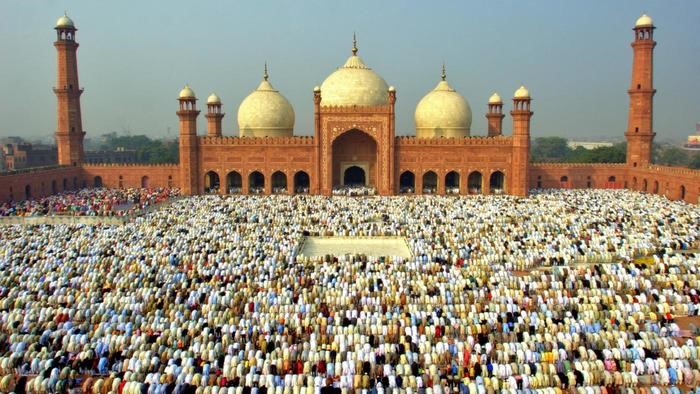
Today, Islam has around one billion people adherents. It is the major religion in more than 40 countries. It is almost the sole religion of all Arab countries and has major communities in Africa as well. The largest Muslim country in the world is our neighbour, Indonesia.
Muslims reject the title Mohammedanism, for Muhammed is thought to be only a carrier of the truth and not divine in any way. Instead, they prefer the word "Islam", which refers to "submission" to God.
The Muslim holy book, the Koran, is for the most part a series of short teachings. It is intensely revered by Muslims as, the final word of God, the culmination of what was only begun in the Bible. The Koran is much shorter than the Bible. Muslim theology (usually called Tahwid, from its central doctrine of the unity, or oneness, of God) defines all that a man should believe, while the Shari'a (the law) prescribes everything else he should do.
The Shari'a embraces every detail of human life, from the prohibition of crime to the use of the toothpick, from the organisation of the state to the intimacies of family life Criminal sanctions under Shari'a law include cutting off the hand of a thief, stoning of adulterers and flogging of fornicators, however Shari'a is not applied in most Islamic societies because of the separation of Mosque and State.
Shi'ites believe that religious leaders should also be political rulers, whereas the majority of Muslims, the Sunnis, believe in a separation of the two realms. Shi'ism and Sunnism also differ sharply on the question of Mohammed's successor. Sufis form the mystical branch of Islam, teaching an arduous path of self-denial culminating in union with God
God
"Allah" (in Arabic and numerous other languages) means the God, indicating the monotheism of Christianity and Islam. "We shall not serve anyone but God, and we shall associate none with Him" (Koran 3.64)


Muslims believe God has seven attributes:
- He is eternal
- He knows all things
- He is almighty
- He is able to do what He wills
- He hears every sound
- He sees everything
- He speaks, but without a tongue
Any division of God is rejected, including the Christian divinity of Christ. ("It is not meet for God to have children" [19:2]. "Say, Allah is one, Allah is He on whom all depend. He begets not, nor is He begotten, and none is like Him [112-4]. Muslims believe that Christians worship a Trinity consisting of God, Mary and their son Jesus. The Koran depicts Jesus' followers deifying him and his mother against their will.
According to Muhammed, Jesus prophesied the coming of another prophet, Ahmad (a variant on Muhammed); Muslims claim Christians changed this to refer to the coming of the Holy Spirit in John's Gospel (chapters 14-16). Some traditions add that Jesus will come again, marry, have children, break the symbol of the cross and acknowledge Islam. The second coming of Jesus and the advent of the Mahdi ("the guided") are linked inextricably.
The majesty and might of Allah are portrayed in the Koran and it is emphasised that His purposes are always serious. Justice is Allah's most important feature for Muslims. Allah is merciful and compassionate, but that mercy is shown mainly in his sending messengers who proclaim the truth of man's responsibility to live according to his dictates.
Muslims also believe in Archangels (Jibril, or Gabriel, confused with the Holy Spirit, Mika'il, or Michael, the guardian of the Jews; Izrafil, the summoner to resurrection; and Izra'il, the messenger of death) and an indefinite number of ordinary angels. Two recording angels accompany every man; one on his right records his good deeds; the one on his left his sins (82: I l). There are others. Anyone who denies the existence of angels is considered an infidel. Between angels and men there is a multitude of creatures called Jinn. Satan is regarded as a fallen jinn, who was created from fire, and who disobeyed God's command to the angels to do homage to Adam (2:32).
The Allah of Islam is essentially unknowable. The Christian understanding of God is One who is self-giving and loving and who gives out of grace, to bring erring, unworthy people to a knowledge and experience of His salvation. The Koran does not contain the "agape" love of God.
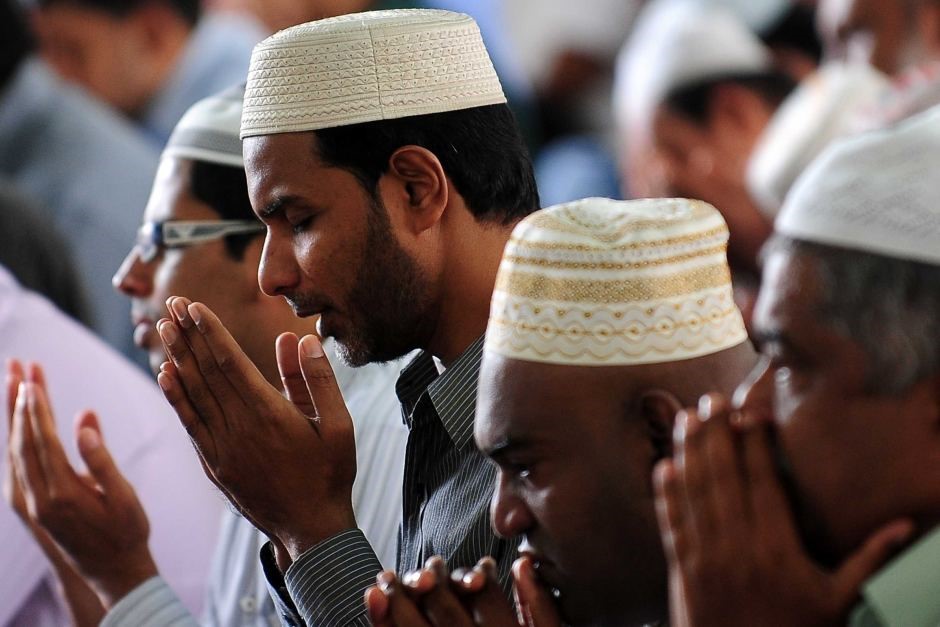
Man and the Universe
Muslims see the universe as created by the deliberate act of a personal, omnipresent God. The universe is considered basically good, being given for the benefit of man. Muslim respect for the world order led to the development of sciences in Arab countries long before developments in Europe.
Muslims believe Muhammed did not produce miracles but simply proclaimed the message of Allah. Thus the presence of God in the world is not sought through supernatural signs but through the order of nature and the one great miracle, the Koran. Muslims generally do not expect miraculous deliverance from suffering in this life but believe that good deeds will be rewarded in the next life.
Man is considered a sort of vice-regent, in charge of creation under the authority of God. His purpose - and the goal of Islam - is to establish and maintain a moral order in the world
Man is endowed with taqwa, a divine spark manifested in his conscience that enables him to perceive the truth and to act on it. Conscience is thus of the greatest value in Islam, much as love is the greatest value to Christians. Muslims also strongly believe in predestination. Islam teaches that God is absolute in His decrees of good and evil. Nothing comes to pass, whether good or bad, expect by the Divine will, according to what Allah has engraved in fate. "Allah leaves in error whom He wills and guides whom he pleases" (14:98). Man is thus a mere puppet, void of free will. This means a person is not responsible for much of what he does or in control of what happens to him. Nevertheless, man may cultivate his taqwa and so live according to the way of Allah, or he may suppress it.
Islam is a strong missionary religion; in principle, every Muslim is a missionary. Islam's acceptance of believers as (more or less) equal has great appeal in such countries as India where caste systems divide people. Islam is a great leveller in such societies and India has one of the world's largest Muslim populations.
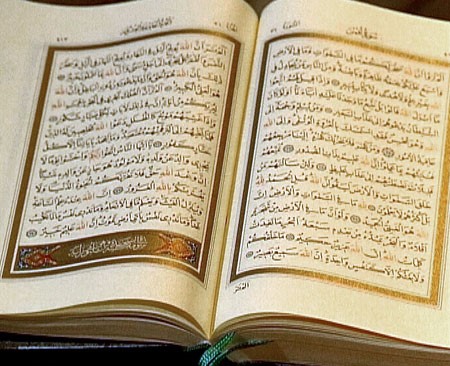
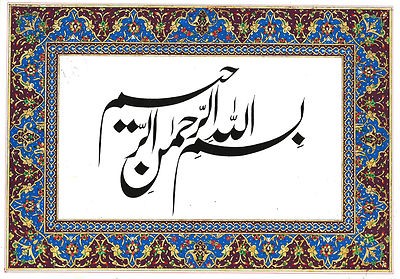
Salvation and the Afterlife
The Koran rejects the notion of redemption; salvation depends on a person's actions and attitudes. However, tauba ("repentance") can quickly turn an evil man toward the virtue that will save him. Islam does not hold out the possibility of salvation through the work of God, but invites man to accept God's guidance.
The final day of reckoning is described in awesome terms. On that last day every person will account for what they have done and their eternal existence will be determined on that basis. "Every man's actions have we hung around his neck, and on the last day shall be laid before him in a wide-open book" (17.13).
Muslims recognise that individuals have been given different abilities and degrees of insight into the truth. Each person will be judged according to their situation, and every person who lives according to the truth to the best of their abilities will achieve heaven. However, Islam also teaches that infidels who are presented with the truth of Islam and reject it will be given no mercy.
The Koran has vivid descriptions of both heaven and hell. Heaven is depicted in terms of seductive sensual delights (reclining on soft couches, quaffing cups of wine handed to them by Houris, or maidens of Paradise, of whom every man may marry as many as he pleases), and the torments of hell are shown in detail. Muslims disagree as to whether those descriptions are to be taken literally or not.
Morals
Islam is a "whole-of-life" religion. Arabic, the first language of Islam, is replete with its rhetoric. The teaching of Islam presents a "straight path" of clear-cut duties and commands. Islamic morals are a combination of genuine acts of love and justice on the one hand and legalistic performances on the other
Muhammed is pictured in the Koran as a loving person, helping the poor and slow to take revenge. Nevertheless, the firm belief that Muslims possess the one truth has led to much violence on behalf of Allah through the ages.
Although the Koran worked to elevate the horribly degraded position of women in Arab society, women continue to be regarded more as possible temptations to sin for men than as human beings with their own responsibilities before God. Many modern Muslims take the Koran's approval of multiple wives to be applicable only to ancient times. However, all predominantly Muslim societies are male-dominated .
Strict Muslims do not partake of alcohol, eat pig or blood, gamble or exact usury (interest). Some Muslims do not take out life assurance or investments, regardless of the interest offered
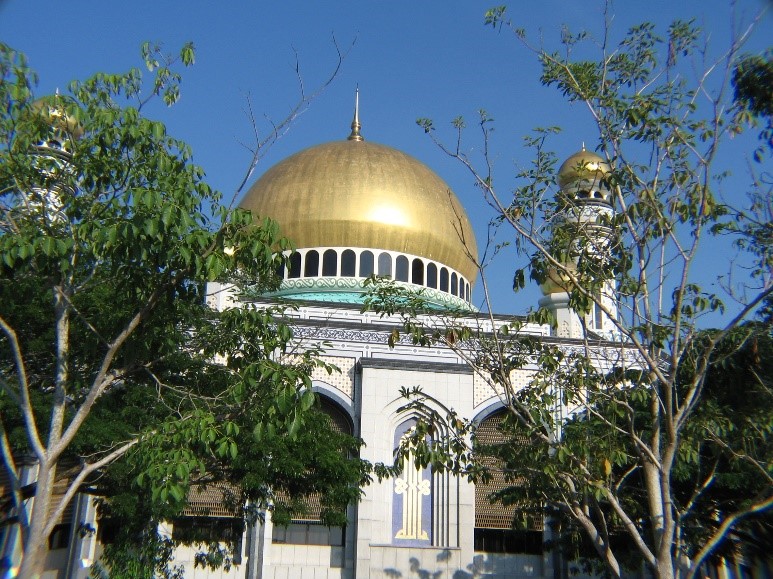
Worship
Muhammed is not worshipped; only God is. Because of strict rules against depictions of human forms in art there is a strong emphasis against idolatry or saint-worshipping in Islam. Allah is extolled in hymns that depict his power and majesty. But even Allah cannot be untimely leaned on for salvation, because salvation is man's responsibility.
Acts of worship in Islam are embodied in "five pillars"
A Muslim must:
- recite the basic creed (or shahadah, or Kalima), "There is no God but Allah, and Muhammed is the messenger of Allah";
- recite prayers in praise of Allah five times daily while facing Mecca (1 hour before sunrise, 10.00 am, 1.00 pm, 4.00 pm and 1 hour after sunset);
- give 2% of their income (alms) to the poor;
- fast (saum), in particular for one month a year (Ramadan, the 9th month of the Muslim year): "O you who believe, fasting is prescribed for those before you so that you may guard against evil" (2: 163); and
- make a pilgrimage (hajj) at least once during his lifetime to Mecca, the city where Allah revealed the Koran to Muhammed
For many Muslims, a 6th religious duty is Jihad, or Holy War. I t is incumbent on all adult, free Muslim men to answer any legally declared summons to war against the infidels. If a man dies in jihad he is considered a martyr and is assured of Paradise.
Christians
There is historical evidence that Muhammed was well disposed to Christians and Jews early in his life. If Muhammed had not been acquainted with distortions of Christianity and internecine struggles (Latins, Orthodox, Monophysites, Nestorians) he may have been open to a different understanding of the Gospel.
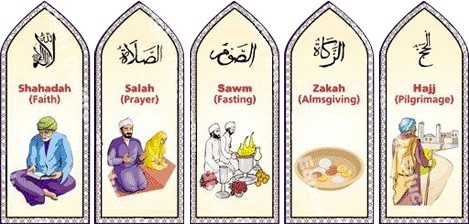
The Koran teaches that "Isa", or Jesus, was the Messiah, was born of a virgin and is called God's Word and Ruh Allah, or "a spirit from God" (4.169). He was a great miracle worker and one of the greatest of the Prophets. The Koran has Jesus rejecting divinity and denies that he was ever crucified (4 156, 157). When the Jews sought to crucify him, God took him to heaven and gave someone else (Judas Iscariot or Simon of Cyrene) his likeness; they were crucified in his place.
Muslims associate Christians with
the tragedy of the Crusades, during the Middle Ages;
Western immorality - assuming Western nations are "Christian", Christianity is associated with free sex, alcoholism, drug addiction and rampant commercialism,
idolatry (especially in Catholic and Orthodox churches);
ineffective witness, particularly in Muslim countries (the church did comparatively little to take the Gospel to the Muslim world until the modern era of Christian missions).
Many Muslims respect the Bible, which they consider a holy book. Some stories are changed, eg Ishmael is the son God commands Abraham to sacrifice (cf Genesis 22). The similarities are interesting and appear to confirm some claims that Muhammed had contact with Christians and/or Jews. A sect called the Collyridians, who worshipped Mary, functioned in Arabia at the time of Muhammed, this may account for his reaction to the Trinity. Muslims claim Christians altered the books in the Bible, to hide the predictions of the coming of Muhammed. Christians, they believe, have betrayed God's true revelation.
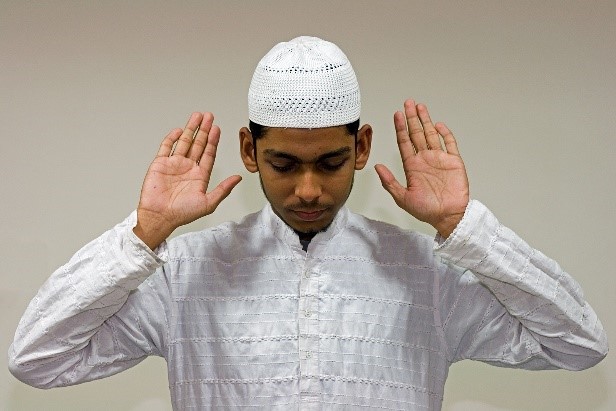

Issues Involved in Winning Muslims to Christ
Traditionally, missionary outreach to Islamic countries has been low-key compared with activities in central and southern Africa, Asia, the Pacific and Latin America.
Until comparatively recently Muslims were uncommon in Australia. Increasing immigration and international students from the Middle East and Asia have brought Australians face to face with Muslim traditions, mosques and clerics. The pivotal role of the Middle East in world oil production has also increased Australians' awareness of the influence and affluence of many Islamic countries. Recurrences of the region in current affairs have kept the Middle East (and a number of Islamic traditions) in the spotlight. A further factor has been world attention on terrorist attacks over recent years
The capacity of Christians to witness to Muslims in Australia is as yet largely untapped However, Christians living in Canberra do not have to look far to find Muslims, as they are increasingly travelling to the West for work and study. They are thirsting for knowledge. They are also curious about the prosperity and influence of the many Christians they see. Australians are finding that the "mission field" has been brought to their neighbourhood. Many students will return to their countries of origin with views about Christianity that they have formed in Australia. The least Christians can do is provide them with the Gospel in a printed form (even a Gospel portion placed in their hands in Australia is more than most will receive in their home countries) and a simple explanation of the Gospel. If they know Jesus Christ personally, they can witness in lands that forbid missionaries and the preaching of the Gospel.
Because Islam is a way of life, becoming a Christian involves leaving that way of life, including family, friends, other social connections. In some countries conversion is against the law and may lead to death. It is not unknown for a Muslim family to conduct a funeral service for a member who has become a Christian. This is particularly the case after Christian baptism, which is seen by Muslims as the final breach with Islam.
Many converts from Islam today testify to coming to Christ after divine intervention, for example Jesus appearing to them in dreams or visions, or as a result of a divine healing.
Converts often find it hard because there are few Christians and no churches to whom they can relate. Christian work in Muslim countries has focussed on education or medical work, however much of this does not involve imparting the Gospel, because of fear of retribution. The Muslim who accepts Christ will have a need for personal Bible study and teaching. A Bible in his own language is a good starting place. It is also essential that Muslims who become Christians receive the Baptism in the Holy Spirit, to give them power to live for Christ and not renounce their faith under family pressure.
It can be difficult to win Muslims to Christ through direct evangelism. Muslims are taught to be resistant to the "way of salvation" approach. Another reason is that such an approach often overlooks important differences in terminology. Terms such as sin (Muslims believe this consists of failing to measure up to the Islamic moral code and failure to perform the requirements of the 5 pillars of Islam), salvation (the Muslim believes no one can pay for another's sins), the cross and Son of God have an entirely different meaning for the Muslim. A Muslim cannot understand the meaning of such terminology as long as he denies that Jesus died on the cross.
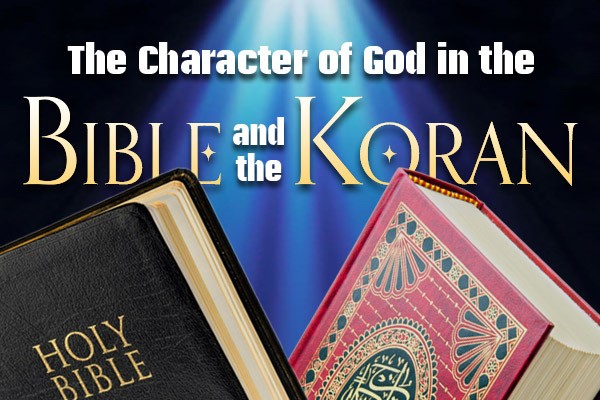
When discussing the Bible with a Muslim, it is important that verses be read in context. It is equally important to know the Scriptures thoroughly and be able to lead the Muslim to understand the meaning of passages in relation to the setting in which they are found. Otherwise, they will lack confidence in what they are being told .
The Muslim will be impressed with a Christian's words only if they experience friendship and see them living a moral life. A Christian's testimony must match their lifestyle. The Muslim will be sensitive to the love and quality of life that Christ gives. They will respect a Christian who gives God the glory for his lifestyle because the Muslim sees this as a sign of piety. It is better to win a Muslim as a friend rather than lose his friendship. It is therefore advisable not to begin by attacking Islam, the Koran or Muhammed .
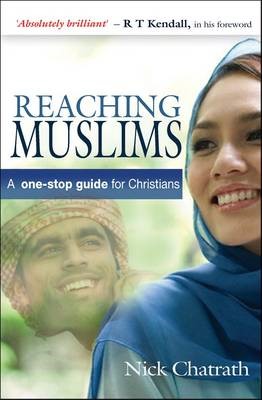
Discretion is necessary with the opposite sex. In many Muslim countries contact with the opposite sex is prohibited until after engagement and marriage. Engaged couples are chaperoned by family members. A strict Muslim man will not shake hands with or look a woman in the eye for fear of temptation. It is preferable that Christians relate to Muslims of their own sex unless other persons are present. Christians from a Western culture (especially women) should be mindful of dress - recent history of missions to Muslim countries is peppered with offences unwittingly caused by disregard for dress.
It is important that Muslims understand the West is not "Christian". While much of our social and legal framework have a Judeo-Christian background, Western society is secular through and through. Genuine Christians are as appalled at Western standards as any Muslim. Christians must remember that Jesus did not die on the cross for a Western way of life. Indeed, the majority of Christians today do not live in the West.
An additional door that is open today is secular work in Islamic countries (eg specialist work), which provides access otherwise denied to conventional missionaries.
Muslims believe Christians have "lost" God's revelation. Matthew - John are viewed as men's interpretations. This misunderstanding is compounded when Muslims see that words in the Bible have alternative renderings in the margin, and that there are different versions. While English language versions of the Koran are available in many book stores, some Islamic scholars claim that the Koran can only be read in the original Arabic.
The Bible grapples with issues of concern to Muslims, eg is it permissible to eat all forms of meat? Paul claims we are free, but warns against allowing our freedom to become a stumbling block to others, preventing them from turning to Christ (Romans 14: 13; I Corinthians 8:9). He also recognised that the preaching of the cross would be a stumbling block (l Corinthians I :23). If you are keen on witnessing to a Muslim, be prepared to make compromises on negotiables (eg moral living is non-negotiable; however eating pork may be negotiable).
Some suggestions for witnessing to Muslims
Conventional ways of witnessing (eg street meetings, kerbside "Let me share my faith with you") are unacceptable (and can be illegal) in many Muslim communities. In Australia we have no such restrictions. Here are a few suggestions to help you relate to your Muslim contact.
- Get to know them- friendship evangelism, by building trust and the capacity to speak into peoples' lives, with the help of the Holy Spirit. Invite them into your circle.
- Practice Christian love - this will contrast with what they know about historical Christianity. Let your light shine. Watch all of your relationships.
- Practice abstinence and discipline in your personal life. This will enable you to witness by your life and dispel the notion you are a Christian because you are Western.
- Have a strong relationship with God Get to know the Bible (and treat the Bible with respect). Pray regularly. Your testimony will be a strong witness. Be prepared to share your personal faith and back it up from the Bible if the opportunity arises.
- Be sensitive to cultural nuances, especially if your friend is from another culture and is already experiencing difficulty being accepted in Australian society
- Invite them to church. It may be the first time they will have seen Christians pray, sing, worship God. Avoid anything that appears idolatrous.
- Establish whether they are committed to Islam or a "Friday Muslim" (somewhat akin to a "Sunday Christian").
- Avoid theological debate for argument's sake. It is important to remember that your appeal to the authority of the Scriptures may not be shared by your friend. On the other hand, learn all you can about Islam and prepared to discuss issues rationally. Focus on areas of common belief, eg monotheism, God who is Creator, personal and holy, personal accountability, Day of Judgement. Understand the reason for the atonement and be equipped to explain it.
- Lovingly correct any misconceptions that arise, eg the Muslim misunderstanding of the Christian belief in the Trinity.
- Pray for your friend. Remember Jesus' words, "Without me you can do nothing" (Jn 15:5). "No man can come to me, except the Father who sent me draw him (John 6).
- Avoid debate about the right of Israel to exist. This is because the third most holy site in Islam (after Mecca and Medina) is the Dome of the Rock in Jerusalem.

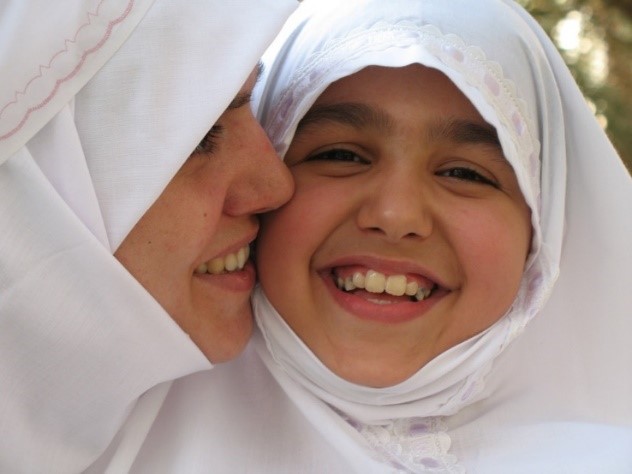
Questions about Christianity Asked by Muslims and Muslim Converts
- If God allowed multiple wives in the Old Testament why do Christians disapprove of a Muslim man with as many as four wives?
- Christians eat pork. However, this was forbidden in the Old Testament. Since God is perfect and eternal, and does not change his mind, how can the eating of pork be reconciled with the Scriptures?
- How can Christians have confidence in the Bible? How can we be sure it was not deliberately tampered with by previous generations to conceal prophecies about Muhammed?
- If Mary is not part of the Christian idea of God, or the "Trinity", what is her role and how can the Trinity be understood?
- If the Christian Gospel is God way of salvation, why do Christians not appear to be making serious attempts to reach the Muslim world with this message?
- If Jesus Christ is the Messiah, how am I to regard Muhammed and the teachings of the Koran?
- Why do Christians have idols in many of their churches?
How to Find Muslims
Depending on your personal circumstances, you will locate Muslims easier than you imagine. If you are studying, you will encounter Muslim international students who come to Australia every year, mainly from Asia. There may be Muslims in your workplace. Perhaps a neighbour, or the parent of a friend of a school-age child. Consider hosting a Muslim student in your home.













